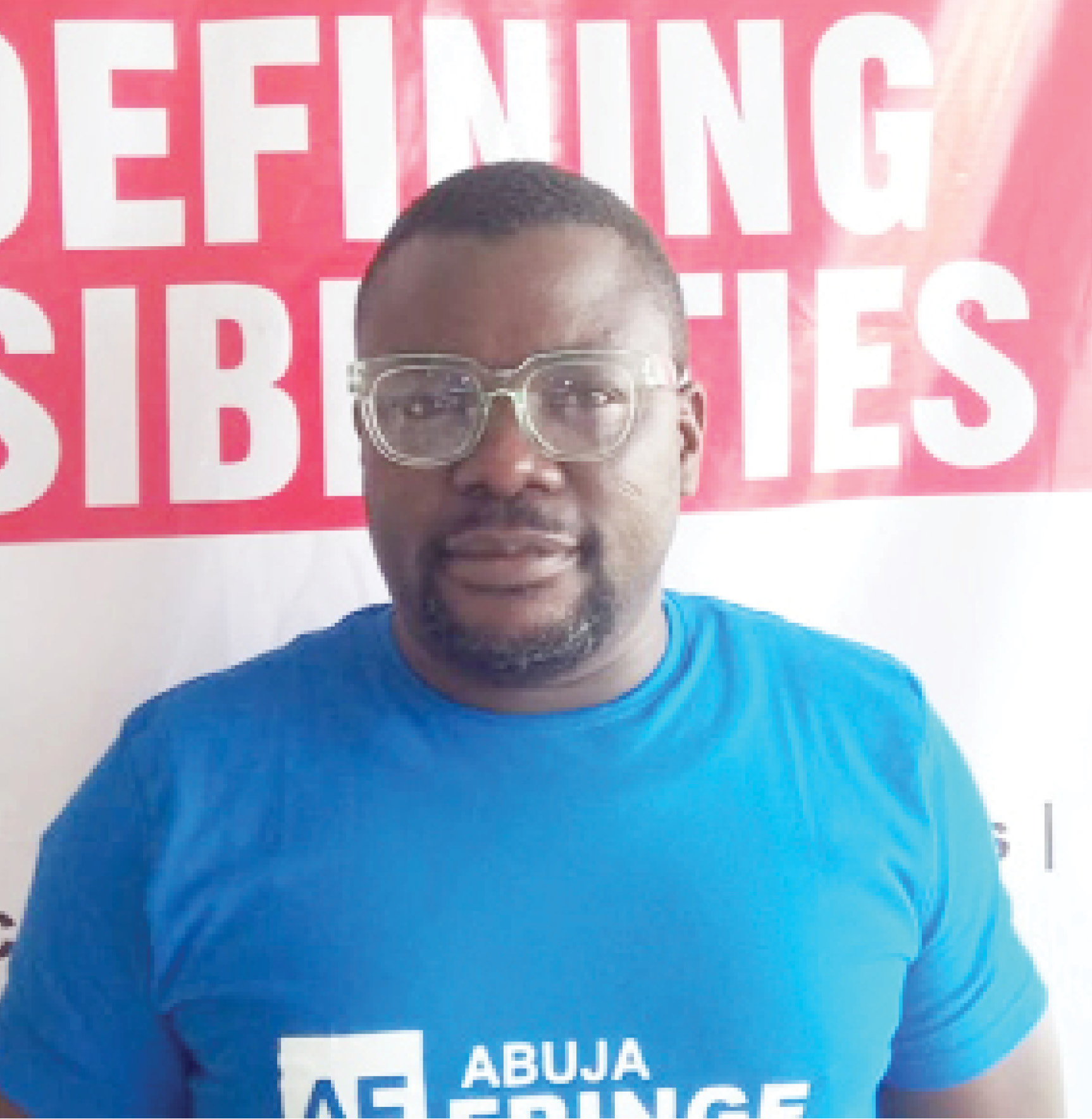Kenneth Uphopho is the founding Director for the Abuja Fringe Festival. He is also a director and partner at PAW Studios Nigeria. Arts & Ideas caught up with him for a chat on the second day of the Abuja Fringe Festival.
Dressed in a T-shirt, a pair of Jeans and sneakers, Kenneth Uphopho is busy in the Krump Studios situated on the fourth floor of Alibro Atrium building in Utako, Abuja when I walk in. The Lagos Fringe Festival had taken place from November 17 to 22, 2020 and he and some members of the team were in Abuja to replicate the commercial city’s experience in Nigeria’s capital, a feat he says hasn’t been easy and that they had thought of cancelling. But it’s obviously not the first time he has taken up such a challenge.
- Gunmen abduct Kogi LG ex-chair, demand N25m ransom
- NBAIS holds workshop on integrated Tsangaya system
After successfully running the Lagos Theatre Festival (where he was Director), an initiative of the British Council, for five years, Uphopho and his team established the Lagos Fringe Festival in 2018. Uphopho describes the 2020 event as “amazing.”

“Due to the pandemic we did like a hybrid version this year in Lagos, where seventy per cent of events were virtual and thirty per cent live,” he explains in between curating a creative writing workshop that’s part online, part live at the Krump Studios. Two writers, Africa Ukoh, writer of the 2019 movie known as ‘The Lost Okoroshi’ and Bode Asiyanbi, a two-time winner of the BBC African Performance Playwriting Prize.
“But it was still very well attended. So, we tried to replicate that in Abuja,” Uphopho says.
The Fringe creates a platform for producers, exhibitors, and generally art enthusiasts, both professionals and amateurs to develop partnerships.
“In a nutshell, everyone involved in the creative economy,” Uphopho says. “Anyone who has an incline towards the arts. We want to bring such people together for a whole week every year to experience the Abuja Fringe. It would always include performances, both visual, digital and live events.”
Since 2020 is the inaugural year in Abuja, Uphopho and his team planned for an eighty per cent virtual and twenty per cent live event.
On 17, December, in a chat with journalists, which the Fringe describes as its official opening in Abuja, the team explained it was willing to experiment with shows that may be uncommon in the capital city.
Unlike other festivals, what the Fringe does is to open access so artists, whether writers, dancers, actors or singers, to approach them. And all they (the Fringe) do is curate the events.
“We usually have multiple venues where a variety of events take place within the festival period,” Uphopho says. “There would be a specific festival hall where everyone can gather to network, and then every evening there will be music and networking. Artists can meet participants, and it would also be an opportunity to meet potential investors.”
But like many other such initiatives, funding is a key challenge for holding the Fringe festivals. In Lagos, Uphopho explains that it was a multidisciplinary affair too where different production companies came together. They curated shows and what they called Fringe Events where every kind of event can take place at a particular space.
“For example, if there’s music at 7pm, artists get to perform at that time as long as they register with us,” he says. “We had a situation where there was a live painting going on and the artist allowed the audience to make imprints on his art.”
But while funding is a challenge, programming isn’t. In 2018, artists were asked to pay N8,000 to be listed. This was done to make them commit, Uphopho says, adding that the problem has always been how to get “the right people to push the events because we want to fund the artists. We need funding to get equipment and the right venue so artists don’t have to bear the burden.”
However, the Abuja Fringe Festival is open to artists at no cost. “We have about 15 companies who have indicated interest for 2021 already and eleven who have partnered with us for this year like Krump Studios,” he says.
The main objective of the Fringe festivals is to improve the livelihood of artists in such a way that they can be able to monetise their works, including emerging artists who hardly have the platform to exhibit. But whether the Abuja experience would grow to be like that of Lagos is left to be seen.

 Join Daily Trust WhatsApp Community For Quick Access To News and Happenings Around You.
Join Daily Trust WhatsApp Community For Quick Access To News and Happenings Around You.


